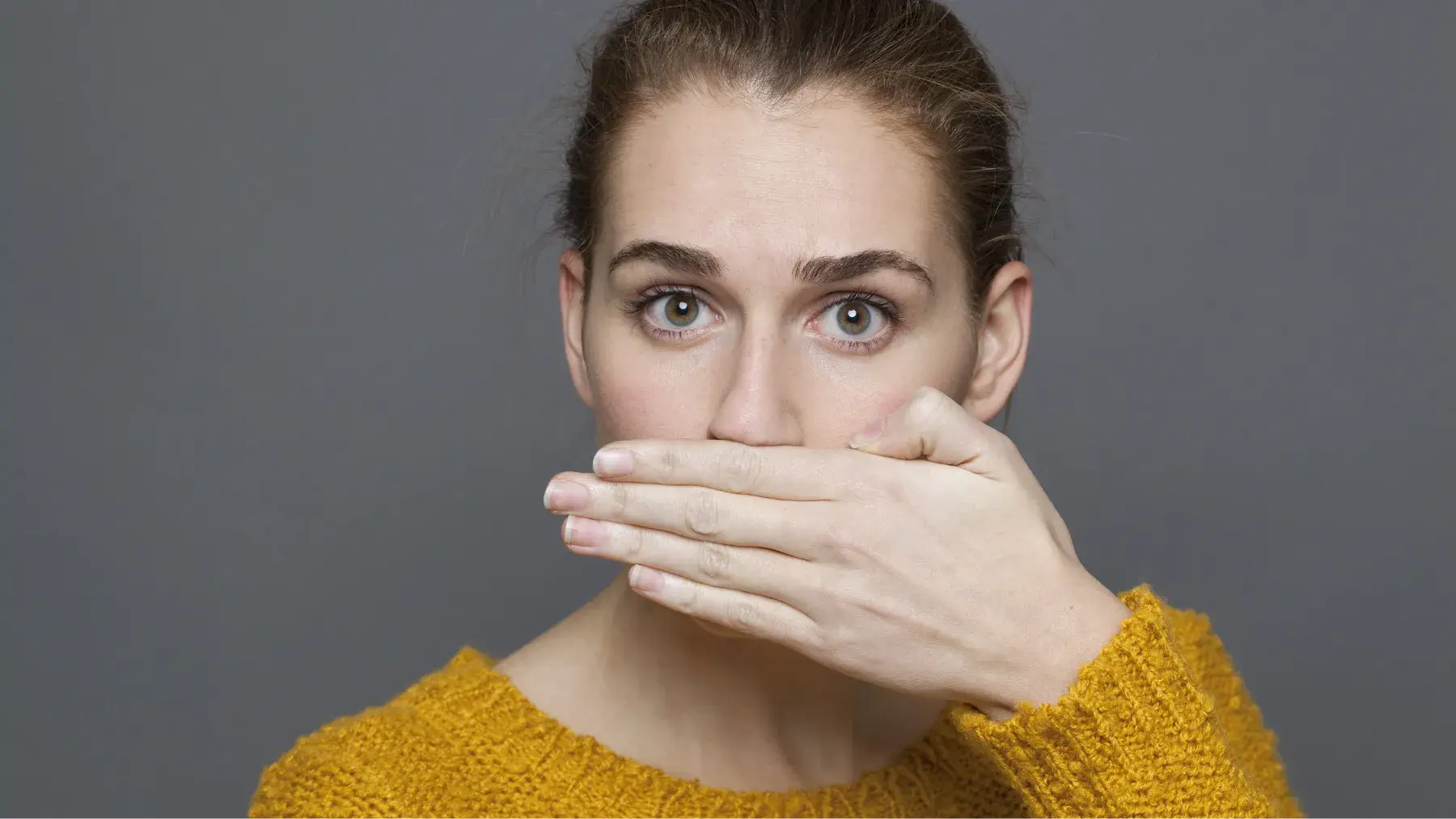Morning breath is a normal—albeit embarrassing—part of being human. You know the feeling: you’re cozily tucked in bed and as you come to, you realize your mouth is filled with an. . . unpleasant. . . odor. You clamp your mouth shut, which can cause dry mouth at night, and plot your path to the bathroom for a quick swish before your partner has a chance to notice.
So what gives? Why do mornings on this great earth taste like this? The likely answer has been in your mouth all along: bacteria.
While you were sleeping, the natural microorganisms in your mouth have been happily doing their thing: living, feasting, reproducing, and eventually dying. These bacteria live in the crevices of your gums, on your tongue, and inside any other nook or cranny they can find in your mouth. As they break down natural substances like food debris, cells, saliva, and blood, they release volatile sulfur compounds and other byproducts known for their less-than-rosy scent.
Luckily, there’s no need to submit to the morning breath stink. With a dose of knowledge and a dose of bad morning breath prevention tips, you’ve got a fighting chance of waking up almost as fresh as when you nodded off.
Why Do We Get Morning Breath?
Why is morning breath a morning problem? Saliva. Specifically, saliva production decreases while you’re sleeping, leaving you with dry mouth at night. Since saliva usually flushes out odor-causing particles, you’re left with bacterial buildup that makes its presence known with its distinctive aroma.
If you sleep with your mouth open, the problem gets even worse. Breathing through your mouth exacerbates the drying effect, so the risk of morning breath increases. Nighttime dryness is normal, but there may be other factors at play, such as certain medications or health conditions which are related to chronic dry mouth.
Other Culprits of Morning Breath
Dry mouth at night is a primary cause of morning breath, but it isn’t the only one. Poor dental hygiene is a red-carpet invitation for the stinky bacteria to live in your mouth. That includes any food particles left overnight, plaque buildup on your teeth and in your gums, and dentures that could stand a thorough cleaning.
Even if your oral care routine is top-notch, some causes are tough to combat. Modifiable factors, such as eating certain foods or smoking, are likely to cause morning breath. Aromatic vegetables like garlic and onions release compounds that move from stomach, to blood, to lungs, to breath. Learn about the top 5 foods that cause bad breath here. Additionally, smoking is the #1 modifiable risk factor for periodontal disease (gingivitis and periodontitis), which can also lead to morning breath.
A large majority of bad breath causes start in the mouth, which leaves 5-10% with non-mouth causes such as ear/nose/throat issues or gastro-intestinal disorders.
How to Get Rid of Morning Breath
Morning breath—also known as “morning halitosis” or “mild transient oral malodor”—is easily treatable. It’s a non-pathological form of halitosis, which means there’s nothing particularly wrong with you. Just brush, floss, and swish with mouthwash and you should be fresh as a daisy. See the Top 5 Bad Breath Treatments to help get rid of your morning breath.
How to Prevent Morning Breath
The real trick is how to avoid morning breath in the first place. These preventative tips will keep your mouth healthy all day long and help you endure those long, dry nights.

Clean Your Tongue
If you already brush twice a day, use mouthwash and floss at least once a day, be sure to clean your tongue, too. Your tongue—especially the back—harbors large amounts of odor-causing bacteria. Brushing your tongue works, but a specialized tongue scraper does the job even better.

Stay Hydrated
Drink plenty of water. Water helps flush your system, increase saliva production, reduce bacteria and can help prevent morning breath. And remember: only water is water. That doesn’t include flavored beverages like coffee, tea, soda, juice, or alcohol.

Have Breakfast and Eat Throughout the Day
Try adopting habits that help your body produce more saliva such as eating breakfast and having snacks and meals throughout the day. Chewing crunchy fruits and veggies like apples and carrots can also help with saliva production. Sucking on sugar-free candies or chewing sugar-free gum are other ways help get the juices flowing. As a last resort, your dentist may recommend artificial saliva to combat an especially dry mouth.

Try Experimental Techniques
Several recent studies suggest that changing your mouth microbiome can reduce the bacteria that cause morning breath. Specifically, administering probiotics like Lactobacilli was found to reduce halitosis by crowding out the spaces where the bacteria that produce malodor live.

Consult a Professional
If in doubt, see your dentist and hygienist. Along with a professional cleaning, he or she can recommend other treatments.




